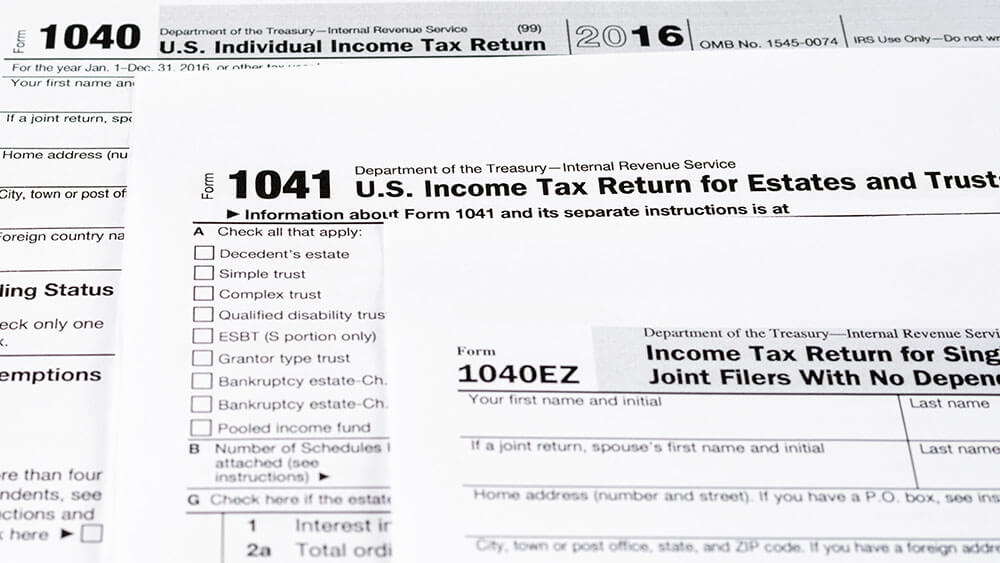When you receive an overseas inheritance, take the following steps:
- Determine the executor, if none has been designated.
- Review local tax laws in the jurisdiction where the assets are held.
- Talk to a tax advisor to determine if you’ll have to pay an inheritance tax.
- Transfer your inheritance to your retirement or bank account, but don’t use a bank to do the transfer.

Who Pays the Inheritance Tax?
If you’re receiving an overseas inheritance, you might wonder who owes the inheritance tax that is often required. Most of the time, the inheritance tax will be acquired from the estate itself and paid by the executor. As the beneficiary, you may not need to pay additional inheritance taxes on your inheritance, but this will depend upon a few different factors, including the country in which you live.

How to Transfer an Inherited IRA
In addition to money and real estate, an inheritance might come in the form of an IRA or retirement fund.
In the U.S., if you were married to the deceased, you can treat the IRA account as if it were your own. And if you are the only beneficiary of the account, you can move the money as you wish, including moving it into your own IRA if you have one, or putting it into a new IRA. However, the distribution, or withdrawal, rules will remain the same.1
If you were not married to the deceased, you will be able to combine the inherited IRA’s funds with your own. You can either transfer the funds into an inherited IRA account, or you could take a lump sum distribution if you don’t want to transfer the money.1
Find out how to transfer an inherited IRA.

How to Transfer a Bank Account Inheritance
If you are receiving money from a foreign bank account or transferring proceeds from the sale of inherited items, you can save money when transferring the funds to your local bank account with the help of OFX. Banks often charge a margin of up to 5% above the live exchange rate, so if you are transferring an inheritance of $100,000, you could end up paying up to $5,000 to your bank. We think that’s too much. OFX can help you save up to 75% on exchange rate margins, allowing you to keep more of the inheritance that is rightfully yours.*
(Transfers of very large sums may require additional verification documents in accordance with regulatory protocols.)

Taxes on an Overseas Inheritance
Different countries will have different inheritance tax laws, so it is best to consult with a professional tax advisor for complete guidance on what you will owe, if anything. Whether you are inheriting property, stocks, or a bank account, knowing the tax implications for overseas inheritances will be crucial.
If you live in Australia, for example, and you receive an inheritance from abroad, you will not be required to pay additional taxes unless the executor has specified that you have to.2,3 However, you will end up paying income tax on any investments that you make using that inheritance, and there are some financial transactions that could also be taxed.
When living in the United States, as another example, you will have to declare assets that you receive from abroad. Federal and state estate taxes might also apply, though there are exceptions.4,5 For more detailed information, consult our Guide to Repatriating an Overseas Inheritance.
On the other hand, if you are a resident of the United Kingdom, whether or not you will be required to cover the inheritance tax will actually depend upon where the deceased was domiciled. Other factors, such as where the assets are located, whether they are considered excluded assets, or if they are part of a trust, will also determine if you owe taxes.6
Seek Professional Advice
The process of receiving an inheritance is complex, especially when you are dealing with an overseas inheritance. Talking with a financial and tax expert, who will help guide you through the entire process, will ensure you receive your inheritance in a timely fashion and pay the appropriate taxes for your country of residence.
*Average savings based on published rates of ANZ, Westpac, NAB and CBA on a single transfer of AUD$10,000 to USD between 21.2.17 and 2.3.17. Transaction costs excluded. Quoted savings are not indicative of future savings.
Sources:
- http://www.schwab.com/public/schwab/investing/retirement_and_planning/understanding_iras/inherited_ira/withdrawal_rules
- https://www.ato.gov.au/Individuals/Deceased-estates/Doing-trust-tax-returns-for-a-deceased-estate/
- https://www.irs.gov/instructions/i706/ch01.html
- https://www.irs.gov/businesses/gifts-from-foreign-person
- https://www.gov.uk/inheritance-tax/when-someone-living-outside-the-uk-dies
IMPORTANT: The contents of this blog do not constitute financial advice and are provided for general information purposes only without taking into account the investment objectives, financial situation and particular needs of any particular person. OzForex Limited (trading as OFX) and its affiliated entities make no recommendation as to the merits of any financial strategy or product referred to in the blog. OFX makes no warranty, express or implied, concerning the suitability, completeness, quality or exactness of the information and models provided in this blog.

